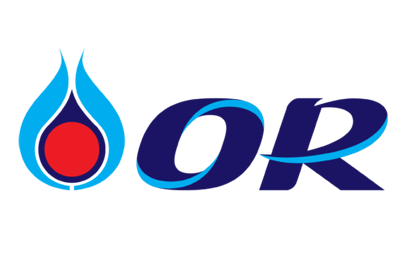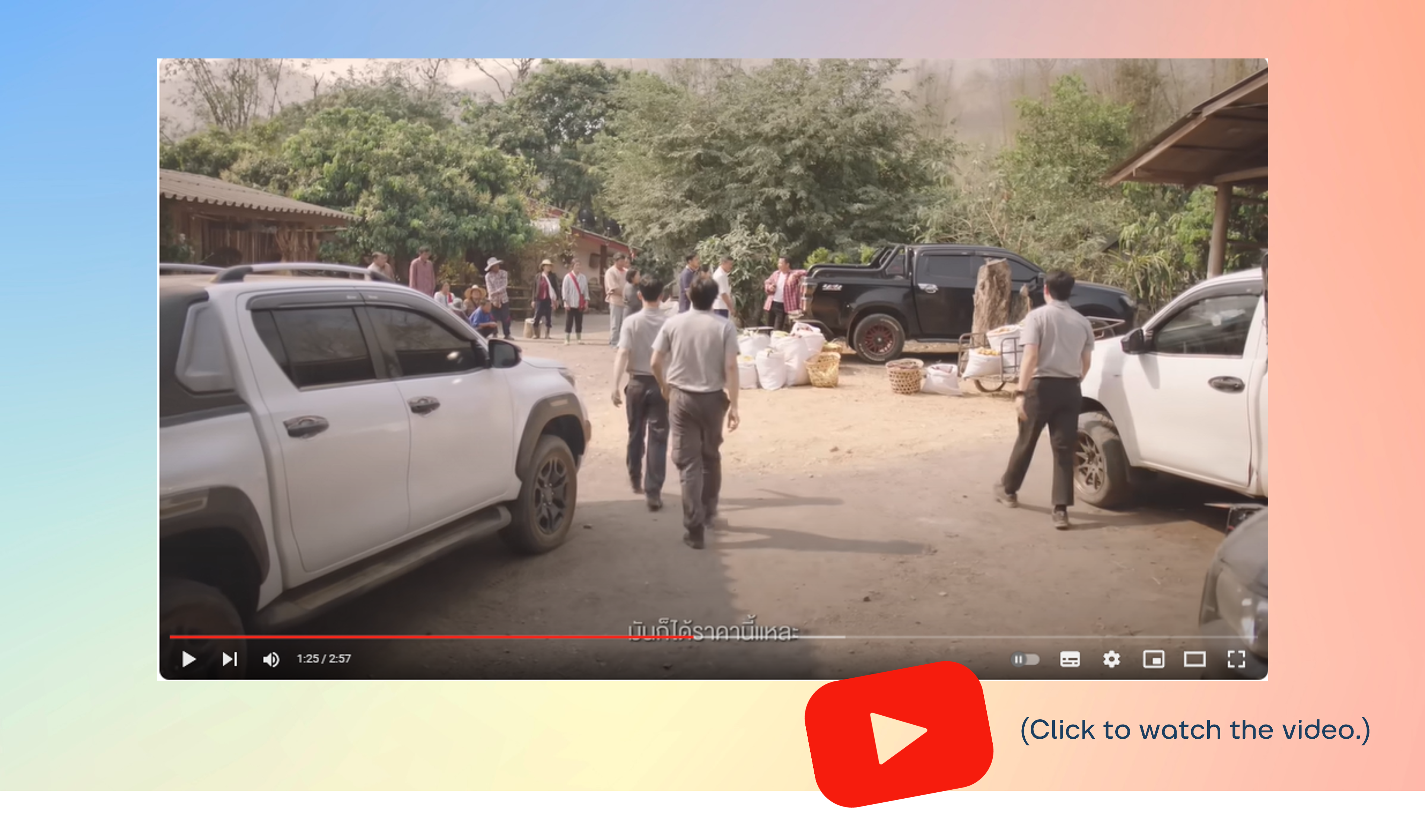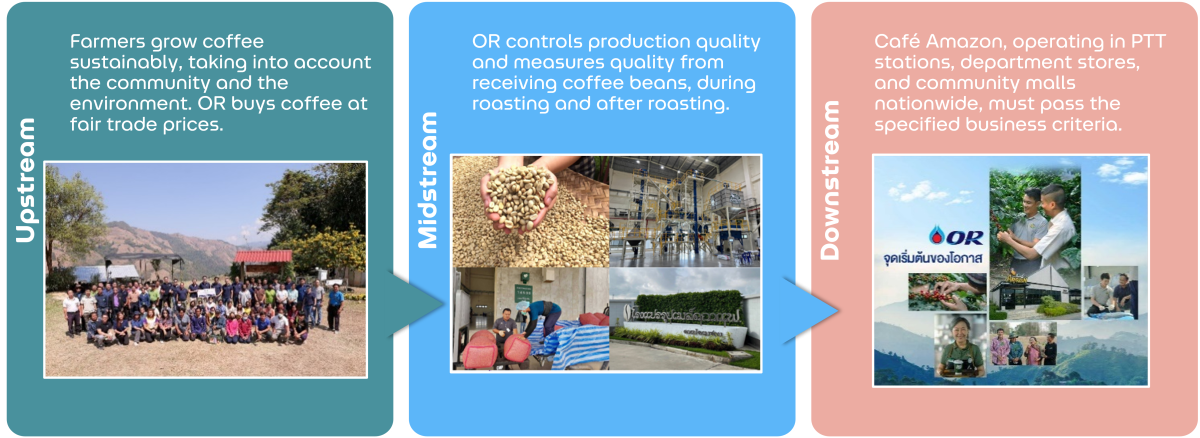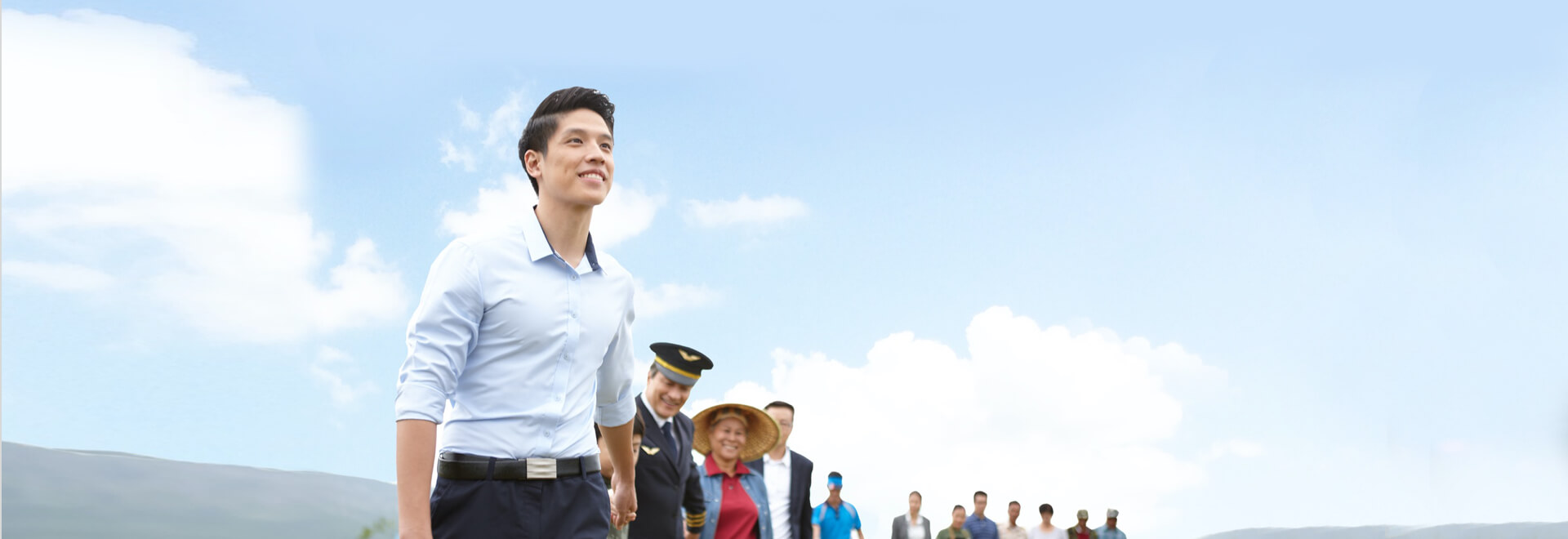
- Home
- >
- Sustainability
- >
- Highlight: Community Development and Social Collaboration
Highlight: Community Development and Social Collaboration
Driving Business
Society and communities are considered stakeholders that could be affected by the organization’s business operations. The impact can be both mutually beneficial and, from another perspective, business operations may also affect people’s way of living in the community.
OR’s vision is “Empowering All Toward Inclusive Growth: OR Fulfills Opportunities for All Growth Together”, where OR realizes the importance of society and communities as key stakeholder groups. This commitment is one of the key pillars for OR’s sustainable development strategy under the “S – Small” approach, which is to create opportunities for small people through business operations along with improving communities’ quality of life towards sustainable business growth and increasing competitiveness in challenging economic and social conditions.
This is Our Giving Priority
OR identified Corporate KPIs to measure performance in participatory social and community development. The aim is to promote the implementation of social and community development activities in a participatory, tangible and effective manner. This is integrated in the Executive KPIs with details of related indicators as follows:
- Improving the quality of life and creating liveable communities (5%)
- Creating growth and distributing wealth to stakeholders (5%)
More information on the Social and Community Development Strategy is available in the ‘Community and Social Collaboration’
Opportunities and Challenges
OR places great importance on community engagement due to its business model, which operates closely with society and local communities. The aim is to promote operations that align with OR’s vision for inclusive growth. To ensure its license to operate, OR fosters strong community relationships and reduces the risk of social opposition or operational disruption. At a broader level, OR collaborates with the government, private sector, and Civil Society Organizations (CSOs) to co-create projects that reinforce its commitment. This strengthens OR’s position as a retail brand valued by consumers and trusted by communities, while enhancing its ability to attract employees, customers, and investors through shared value creation. OR is committed to applying this approach across all business areas to support society, reduce inequality, improve quality of life, and strengthen community economies—creating shared value for all stakeholders in a balanced and sustainable way.
Operational Strategy
OR drives the implementation of social projects from the CSR approach to the CSV approach by integrating social and community development issues into the corporate vision and strategy to create projects that have positive impacts on society and business simultaneously, such as the Sustainable Coffee Plantation Development Project, the TOGETHER Project: Rak at Nongkung, the Café Amazon for Chance Project, and the Thai Det Project, with a focus on achieving goals according to the OR SDG.
In this regard, OR has set up a system to survey the opinions and expectations of the community and society, designed projects with an emphasis on cooperation between the company and the community, and used the company’s resources, such as financial resources or employee expertise, effectively to achieve the highest social results. In addition, it conducted tangible measurements to assess good practices and identify areas to be expanded, as well as areas for further.
More information is available in the “Community Development and Social Collaboration”
Long Term Targets
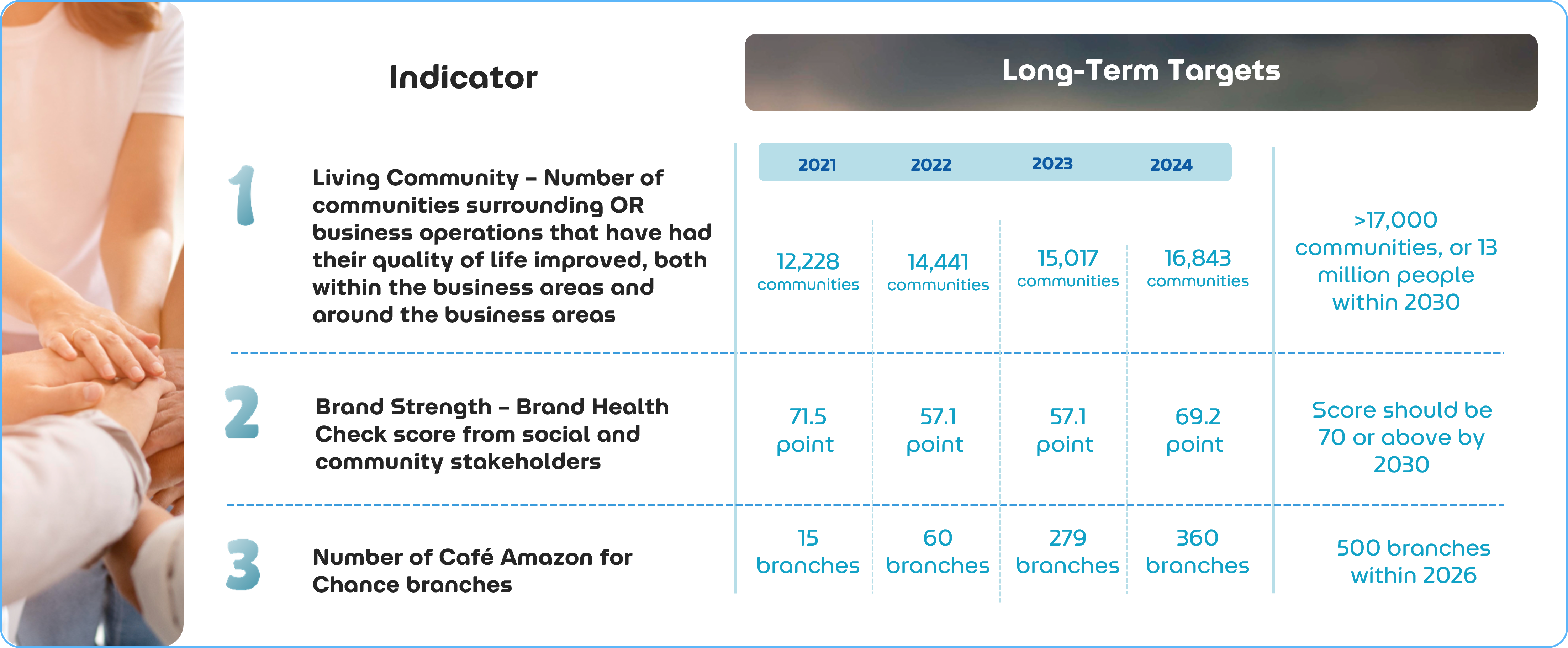
Projects and Outstanding Achievements
TOGETHER Project: Rak at Nongkung
OR is committed to driving social projects that address the issues and needs of stakeholders by implementing projects that allow stakeholders to participate in all activities. An outstanding social project implemented by OR that was used as a case study in 2024 is the TOGETHER Project: Rak at Nongkung.
The project started operation from 2020 until now, covering a period of 5 years. The target group is community and society groups in the area near the petroleum depot operation area, Khon Kaen Province, which operates the process by focusing on finding the real problems and needs of the community. It uncovered that the problems of garbage and polluted water are important environmental issues. In terms of living conditions, local people encounter problems related to fires. In terms of economy, there is unemployment issue and the lack of additional income due to the absence of grouping to create and develop additional careers in the community. Therefore, the overall project was designed from the community’s voice through the process of community participation in identifying the types of problems in order to support waste management, career creation, and fire prevention in order to develop Nongkung community into a strong community, leading to a good quality of life and being able to self-sustain. The project is one of the mechanisms to create participation through the concept of solving environmental problems through participatory waste management, integrated with the concept of career creation according to the philosophy of sufficiency economy to generate additional income for the community by creating products from waste to increase value, as well as fire prevention through the establishment of a working group for the community safety project, along with installing fire extinguishers at various points in the community.
According to the evaluation results of the Social Return On Investment (SROI), the TOGETHER Project: Rak at Nongkung between 2020 and 2024, has the SROI value of 1.77 This means that OR investing 1 baht in society can create a social and environmental return of 1.77 baht or 1.77 times from the investment. The TOGETHER Project: Rak at Nongkung resulted in tangible outcomes, which can identify the outputs, outcomes, and impacts from the project in all dimensions of society, economy, and environment.
Outputs from the TOGEHER Project: Rak at Nongkung |
Outcomes |
Impacts |
|---|---|---|
|
|
. |
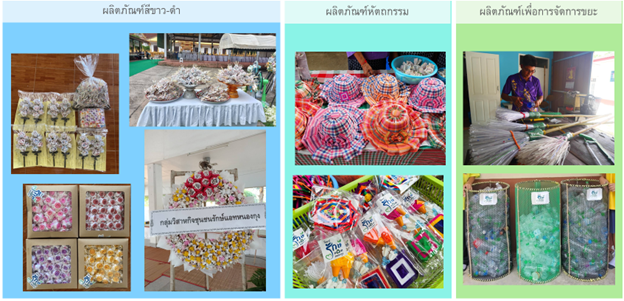
Sustainable Coffee Project
OR has an important goal to raise the standard of coffee planting and production for farmers, as well as being a sustainable purchasing channel for farmers. In the past, OR has important operating areas in Ban Phalang and Ban Pangkhon, Huai Chomphu Subdistrict, Chiang Rai Province, where more than 166 farmers have joined the project on an area of approximately 2,600 rai of Arabica coffee, and in Ban Sam Sung, Ban Huai Mak, Ban Huai Yuak, and Ban A To, Mae Salong Nai Subdistrict, Mae Fah Luang District, Chiang Rai Province, where more than 99 farmers have joined the project on an area of approximately 1,900 rai.In 2024, OR collaborated with the Ministry of Agriculture and Cooperatives to expand the area to promote coffee planting along with nature conservation. This has been done by providing seedling nurseries, coffee drying houses, and water pipe systems to promote coffee planting for farmers in the areas of Pua District, Nan Province and Tha Sae District, Chumphon Province. There is also a cooperation project with the Department of National Parks, Wildlife and Plant Conservation to expand the area of the sustainable coffee planting development project in Mae Chaem District, Chiang Mai Province, as well as a cooperation project with the Office of the National Land Policy Committee (NLPC) to improve the quality of life of people in the NLPC area towards sustainable development with the Bio-Circular-Green (BCG) economic model to promote, support, and help improve the quality of life of farmers who are coffee producers along with developing coffee bean processing to meet standards, as well as being a market for purchasing quality coffee products with a fair price system (Fair Trade) and aiming to develop into a prototype area for sustainable land use.
In addition, OR has developed Café Amazon Park in Kluai Phae Subdistrict, Mueang District, Lampang Province, with the main objective of being a learning center for the coffee business in a complete cycle from upstream to downstream processes, as well as a research and development center for appropriate coffee strains by applying modern agricultural technology and integrated farming methods, including agroforestry coffee planting, soil management, and water management, to benefit biodiversity and the environment, and to be a model for generating sustainable income for farmers. It will be a learning center for farmers, entrepreneurs, students, and interested persons on an area of over 300 rai.
Sourcing coffee beans from the community is one of the important missions under the Sustainable Coffee Project. The project started in September 2014-present. It started with the cooperation (MOU) with the Royal Project Foundation in buying and selling parchment coffee. It has been expanded to cooperation with Sanpalang Social Enterprise Co., Ltd., the Ministry of Agriculture and Cooperatives, and other network agencies in many areas. Currently, the process of purchasing coffee beans from farmers has been developed using the Fair Trade system via the Kala Web Application to collect information on farmers, planting areas, coffee bean quality, and the amount of coffee beans purchased. This allows for easy and accurate traceability of the purchase and sale data. In addition, farmers who participate in the project will receive knowledge development that is consistent with real production problems, starting from the planting process, maintenance, harvesting, and processing of coffee products to reach the Café Amazon Standard.
Benefits to stakeholders:
- Since 2015-2024, OR has purchased over 7,000 tons of coffee from farmer groups and communities, generating income for over 1,500 farmer groups and communities, with a combined value of over 1,400 million baht.
- The community is united, creating strength in the community.
- Labor returns to the community, reduces social problems caused by family units, and creates peace in the community.
- The project improves the quality of life in communities, resulting in community sustainability.
- Community farmers have the potential to practice sustainable farming that helps prevent forest fires and reduce air pollution from agricultural activities that contribute to smog from fine dust or PM 2.5
- It has a positive effect on the upstream forest ecosystem, the conservation of biodiversity and the environment in the area in a sustainable manner.
Benefits to the company:
In addition to enhancing the potential of growing and selling coffee to local farmers, this project also plays an important role in increasing the choice of coffee bean raw materials for OR’s Café Amazon business. Currently, coffee beans from farmers account for 8-10 percent of the total Café Amazon coffee bean market. Sustainable sourcing of coffee beans from communities provides roasters with quality raw materials for production, which can be further developed into a variety of products, making the production chain sustainable from sourcing sustainable raw materials. It also helps strengthen the organization by reducing the risk of environmental impacts, such as climate change, on coffee production in the long term.
Thai Det Project
“Thai Det Project” was launched in late 2018 through a collaboration between OR and government agency partners with the shared commitment to support and promote community products by expanding their distribution channels. OR leveraged the strength of its nationwide PTT Station service stations and Café Amazon stores as distribution channels, making it easier for community products to access the market and reach consumers.
At the same time, the project aligns with OR’s business objectives by enhancing the brand image of PTT Station and Café Amazon while increasing customer satisfaction. It is a project that successfully integrates business goals with local economic development.
Overall, the project has engaged 450 community entrepreneurs (community enterprises and local business operators), offering 1,034 Thai Det products. The network of Thai Det stores, located within PTT Stations and Café Amazon outlets, has expanded to 424 locations. The project has generated a total income of 166.07 million baht for community entrepreneurs.
In 2024, the Thai Ded Project has further developed its key performance indicators by introducing an eco-friendly product category. This includes community products manufactured using clean energy sources, such as solar power, and products that have improved energy efficiency and received the “Community Energy-Saving Product” certification from the Ministry of Energy.
Currently, the project features a total of 72 eco-friendly products, marking a significant improvement in response to recommendations from the project’s 2023 SROI analysis. This initiative contributes to generating positive environmental impacts for local communities.
Outcome |
Benefits to Stakeholders |
|---|---|
|
|
Café Amazon for Chance Project
Café Amazon has a policy to develop society and community to be a society of mutual support by creating career opportunities for those who lack social opportunities to become employees in the store through the project “Café Amazon for Chance” which currently has 360 branches, divided into 289 COCO stores and 71 franchise stores. The number of underprivileged people is 347 in total, divided into 312 senior citizens, 22 hearing impaired persons, 1 intellectually impaired person, 4 disabled soldiers and their families, 6 physically impaired persons, and 2 underprivileged youths.
In 2024, the Café Amazon for Chance project has created a vocational training plan for the general elderly group to improve and develop their quality of life, in collaboration with the Thai Det project and the Ministry of Social Development and Human Security (MSDHS). The training is a handcrafted bag accessories-making training course from a community enterprise (Montmaxx) in Samut Prakan Province (which is one of the community enterprises in the Thai Det project) for elderly people. After completing the training, the elderly participants gained the skills to produce handcrafted bag accessories independently, which they could then supply to Montmaxx for further distribution at Café Amazon stores.
This initiative builds upon the SROI analysis conducted for Café Amazon for Chance in 2022. Based on the study’s recommendations, the project was refined to create employment opportunities and additional income for the elderly, ultimately improving their quality of life. The key performance for this initiative is the number of elderly participants trained and their ability to apply their skills to generate supplemental income.
Moving forward, the project plans to expand bag distribution through Café Amazon stores and Thai Ded Project channels while also broadening access to vocational training. This includes extending opportunities to other underprivileged groups, furthering the project’s social impact.
Outputs |
Outcomes |
|---|---|
|
|
Award and Recognitions
OR received 4 awards of honor from the Corporate Social Responsibility (CSR-DIW) standard for entrepreneurs in 2024
OR won the 2024 Corporate Social Responsibility from the Department of Industrial Works, or CSR-DIW Award, in four Café Amazon establishments located in OASYS, Wang Noi District, Phra Nakhon Si Ayutthaya Province, namely: 1) Retail Business Distribution Center, 2) Café Amazon Coffee Roasting Plant, 3) Powder Mixing Factory, and 4) Bakery Factory. This is honored by Mr. Nattapol Rangsitpol, Permanent Secretary of the Ministry of Industry, who presented the award plaques at the Royal Jubilee Ballroom, Challenger Building, Impact Muang Thong Thani, Nonthaburi Province.
The CSR-DIW Award is an award given by the Department of Industrial Works, Ministry of Industry, to establishments that have applied the standards of social responsibility of entrepreneurs, covering seven important operational approaches: corporate governance, human rights, labor practices, environment, fair operations, consumer issues, and community participation and development, leading to sustainable development of the community economy and management of the city’s environment. OR sent four pilot establishments to join the competition for the first time and all four establishments received awards.
Receiving the CSR-DIW Award reflects OR’s awareness and importance of driving businesses that can truly create growth and value together with society, communities, and the environment. This aligns with OR’s vision of “Empowering All toward Inclusive Growth: Fulfilling Opportunities for All Growth Together.” It also reaffirms that OR has effective stakeholder management processes and approaches, which has earned the trust of society, communities, customers, business partners, employees, government agencies, and relevant stakeholders throughout the value chain in driving lifestyle businesses within the vicinity of the business premises.
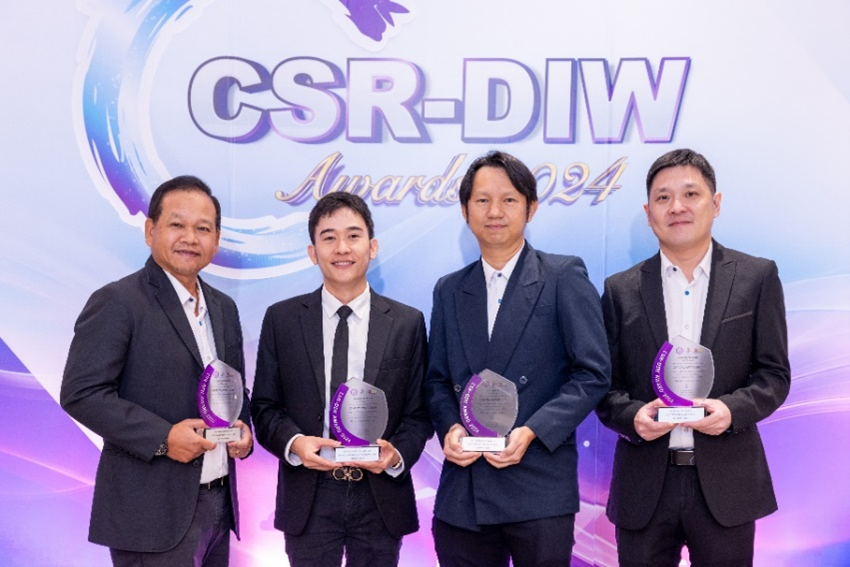
Café Amazon for Chance project receives award at the ceremony honoring individuals and organizations that have contributed to society
On June 19, 2024, OR received an award from the Senate Committee on Social Development and Children, Youth, Women, the Elderly, the Disabled and the Disadvantaged to honor, honor, create morale and encouragement for organizations that benefit society, which are models of organizations that give importance to promoting, supporting and creating value for people with disabilities from the Café Amazon for Chance project.
Site map
- About
- Organization
- Career
- Oil Business
- - Retail Energy Solution
- - Commercial Business
- Retail Business
- Services
- International Business
- Business Opportunity
- Sustainability
PTT Oil and Retail Business Public Company Limited
555/2 Energy Complex Building B, 12th Floor, Vibhavadi Rangsit Rd., Chatuchak, Bangkok 10900
© 2024 OR Tel : 02 196 5959
